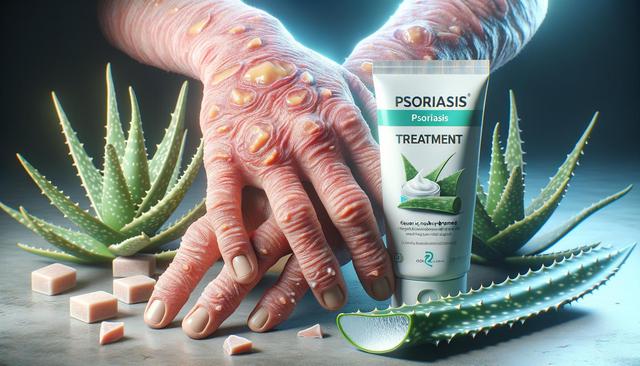The Role of Diet in Psoriasis Management
While psoriasis is primarily an autoimmune condition, there’s growing evidence that diet can significantly impact symptom severity and flare-up frequency. A tailored eating plan can help reduce systemic inflammation, which is a key factor in psoriasis. Many individuals find that following a psoriasis anti-inflammatory diet plan not only improves skin health but also boosts overall well-being. This type of diet emphasizes foods that are rich in antioxidants, omega-3 fatty acids, and fiber, all of which may help ease inflammation in the body.
Crucial components of a psoriasis-friendly diet include:
- Leafy greens like spinach and kale
- Fatty fish such as salmon and sardines
- Whole grains like brown rice and quinoa
- Colorful fruits and vegetables rich in vitamins A and C
These foods are known for their anti-inflammatory properties and may be helpful in reducing flare-ups. However, dietary changes should complement medical advice, not replace it.
Foods to Avoid for Psoriasis Flare-Ups
Identifying and eliminating trigger foods is just as important as including beneficial ones. Certain foods can exacerbate inflammation and contribute to worsening symptoms. Understanding the list of foods to avoid for psoriasis flare-ups can help you make more informed choices and potentially reduce the frequency and intensity of symptoms.
Common trigger foods include:
- Processed meats and high-fat dairy products
- Refined sugars and sweets
- Nightshade vegetables like tomatoes, potatoes, and eggplants
- Alcohol and sugary beverages
These foods may not affect everyone the same way, so keeping a food diary can be useful for identifying personal triggers. By gradually removing suspected items and observing any changes in symptoms, individuals can tailor their diet to better suit their condition.
The Best Diet for Managing Psoriasis Symptoms
When considering the best diet for managing psoriasis symptoms, balance and consistency are key. A diet that reduces inflammation, supports gut health, and promotes nutrient intake is often recommended. This approach involves a combination of foods that help regulate immune function and reduce oxidative stress, both of which are linked to psoriasis outbreaks.
Recommended dietary patterns include:
- Mediterranean-style eating plans rich in fruits, vegetables, and healthy fats
- Low-glycemic foods that help maintain stable blood sugar levels
- Lean protein sources such as legumes, poultry, and tofu
Hydration also plays a crucial role. Drinking plenty of water helps flush toxins from the body and supports skin hydration, which is essential for those with psoriasis. While there is no universal cure, a thoughtful dietary strategy can make a substantial difference in daily comfort and flare-up prevention.
Psoriasis Diet: Foods to Eat and Avoid
Understanding specific psoriasis diet foods to eat and avoid is a practical step toward better symptom control. By focusing on nutrient-dense, whole foods and limiting inflammatory items, individuals can create a sustainable eating plan that supports skin health and reduces immune overactivity. Choosing the right foods can also improve energy levels and support overall health, which is beneficial when managing a chronic condition like psoriasis.
Helpful foods to include regularly:
- Cold-pressed olive oil for healthy fats
- Avocados and seeds for vitamin E
- Fermented foods like yogurt and kimchi for gut health
On the other hand, try to limit or avoid:
- Red meats high in saturated fats
- White bread and other refined grains
- Fast foods and heavily processed snacks
While each person’s response to food can vary, a thoughtful, trial-based approach to diet can provide significant benefit and insight into how your body reacts to different ingredients.
Considering a Gluten-Free Diet for Psoriasis Management
For some individuals with psoriasis, especially those with a sensitivity or intolerance to gluten, adopting a gluten-free diet for psoriasis management has shown promise. Though not a universal solution, removing gluten may help reduce inflammation and improve skin clarity in those who are responsive. Gluten is found in wheat, barley, and rye, which are common in many processed foods, so careful label reading is essential.
Potential benefits of a gluten-free approach include:
- Reduced gut inflammation and improved digestion
- Lowered immune system reactivity
- Improved nutrient absorption
It’s important to consult with a healthcare provider before making this dietary shift, especially since gluten-free diets can be restrictive and may lead to nutrient deficiencies if not managed properly. If gluten sensitivity is suspected, testing is available to help determine whether this path is appropriate. When done mindfully, a gluten-free diet can be an effective part of a broader psoriasis management strategy.
Conclusion: A Thoughtful Diet Can Support Psoriasis Treatment
While there is no one-size-fits-all dietary solution for psoriasis, understanding the connection between food and inflammation can empower individuals to take a proactive role in their treatment. A psoriasis anti-inflammatory diet plan, informed by knowledge of psoriasis diet foods to eat and avoid, can offer meaningful relief when combined with medical therapies. Identifying personal triggers, staying consistent with healthy choices, and even exploring options like a gluten-free diet for psoriasis management can all contribute to improved quality of life. As always, it’s best to work with a healthcare provider or registered dietitian to tailor a diet that meets your individual needs and supports long-term skin health.




Leave a Reply